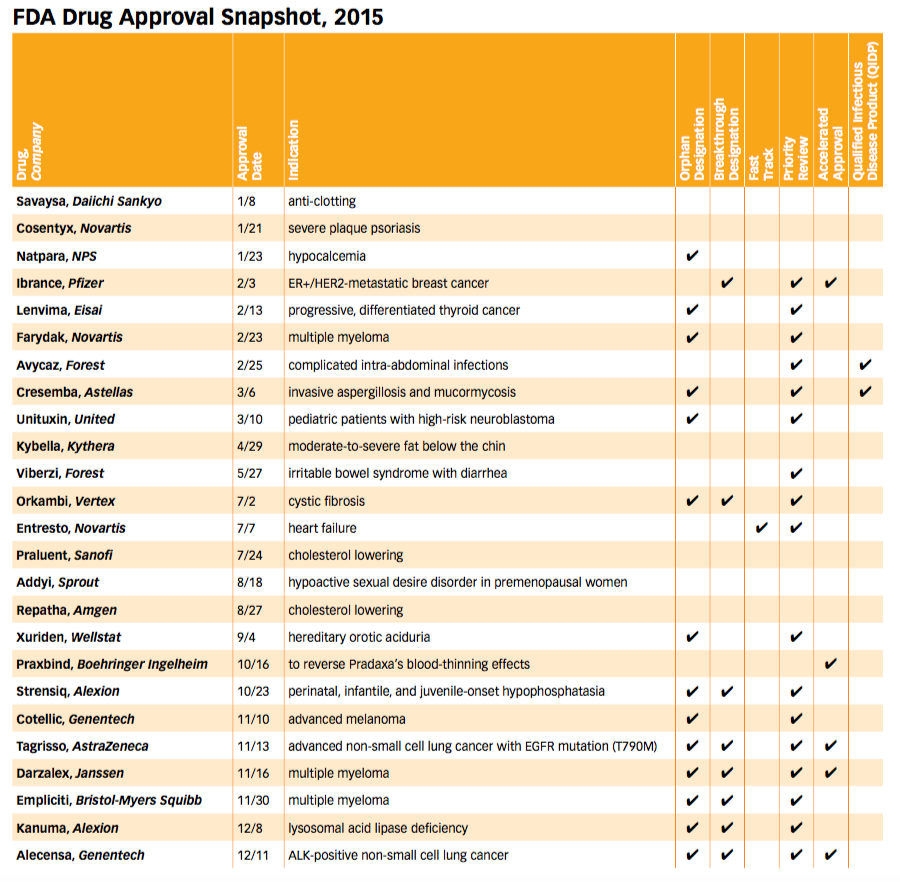2015 FDA Drug Approvals
January 11, 2016.
Judging by the headlines, the industry has failed to cure cancer, Alzheimer’s, Parkinson’s, obesity, etc. Based on this data, from the public’s point of view, big Pharma needs to rethink how it innovates. But consecutive years with high
Casey McDonald

water marks, at 41 NMEs and new therapeutic biological product approvals in 2014, and 45 for 2015, suggests some level of innovative prowess.
A look at the approvals from last year, and the special designations and expedited pathways granted by FDA en route to marketing affirmation, indicates that regulators and drug developers are communicating and cooperating. More than half of the products, 24 of 45, received a special status and/or accelerated review, according to FDA’s approval press releases. Seventeen were granted orphan-drug designation, clearly delineating the rare disease incentive blueprint that the industry is following, while eight were deemed worthy of “breakthrough” therapy status.
Eighteen made use of two or more of the agency’s special pathways and designations. An abridged look at 2015’s list below (highlighting 25 approvals) shows some of the drugs that made extensive use of FDA’s programs, and a few that did not.
(click to enlarge)

Casey McDonald is Pharm Exec's Senior Editor. He can be reached at cmcdonald@advanstar.com
Is Artificial Intelligence a ‘Product’? Products Liability Implications for AI-Based Products
April 10th 2025As the physical products we use evolve to become increasingly complex, traditional products liability frameworks may not always fit to provide remedies for harm that can result from using novel product types.